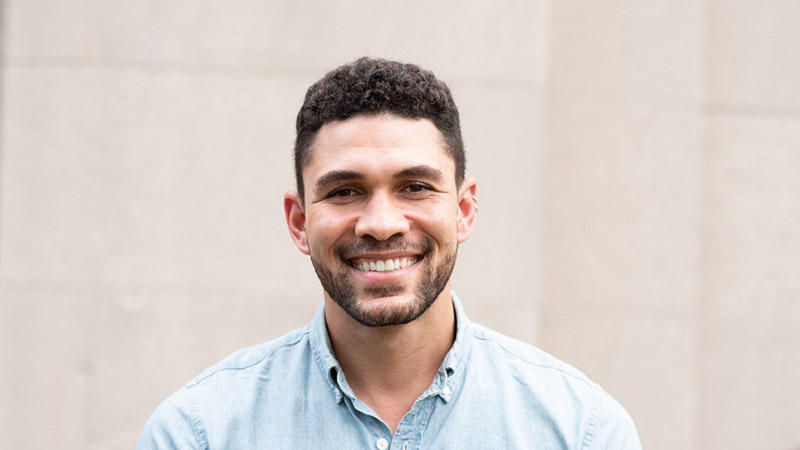I’m passionate about increasing our understanding of how experiences of violence early in life, such as direct experiences of abuse or witnessing intrafamilial or community violence, impact brain development and ultimately, mental health outcomes. The overarching goal of our work is to shine a light on what’s happening “under the hood” after exposure to violence in childhood so that we can better tailor interventions to prevent or address mental health difficulties that follow.
Portrait by Celia Muto
What career did you aspire to as a child and why?
As a child I had two different career goals. On the academic side of things, I really wanted to be a doctor. Specifically, I wanted to be a cardiothoracic surgeon or an anesthesiologist. I don’t quite know how or why I landed on those two options, but I was eager to tell anyone who would listen. My favorite courses in elementary and high school were always science courses (as well as English lit), and it seemed like a natural extension of these interests.
I also had a real passion for music growing up. Though I dabbled in various instruments, my true love was vocal performance. I’ve been in school choirs, touring choirs, glee club, a cappella, and many musical theatre performances as well beginning in the 3rd grade and continuing all the way through college. If I had to describe the type of singing I most enjoy, I’d say think Adele, John Legend, Ariana Grande, Beyonce, and any other vocal diva who can grip you with a soulful ballad and/or buttery-smooth vocals.
What has been one of the most exciting or surprising moments in your career so far?
I’ve been really surprised by how much joy I get out of mentorship. It’s one thing to achieve something myself, but I find it so incredibly moving to help someone else realize that they are capable of something and to help them carve out a path toward achieving their goals. Seeing that “I can do this” look on a mentee’s face or even better, the look of surprise and happiness when they’ve actually done it, is truly fantastic!
What is the hardest part about the work you do?
The hardest part is not taking it home with me. My doctoral training involves clinical work and it can be really difficult to step away from the knowledge that so many people are struggling with mental health difficulties. There’s only so much I can do as just one person to help, both clinically and in terms of advances in the science that guides intervention development, dissemination, and selection, etc.
What is the trait you admire most in others?
Boundary-setting. I think in many arenas of life, and especially the work that we dedicate ourselves to, it can be difficult to establish boundaries and say, “this is how far I’m willing to go, but no farther.” It’s SO important to be able to draw those lines in all the different spheres of life we inhabit, and doing so is both an exercise of self-care, and ultimately one of care for others as well. For example, it does no one any good when we are over-committed and thus not showing up fully in each of our commitment/relationships. I am admittedly still learning how to do this well myself, and so I am drawn to (and admittedly intimidated by) people who have a better grip on this.
What are some of your interests outside the lab or office?
I’m a really big fan of horror/thriller shows! It may sound odd, but a lot of my “relaxation time” is spent watch the newest horror movies or shows such as American Horror Story and the like. I’m not sure what it is if I’m honest. I used to be terrified of this kind of stuff as a child, but I think I felt very motivated to face my fears. Now, I can pretty much predict the plot of most horror or thriller movies because I have a lot of experience with them and it’s kind of like a game that I play. Anyway, some of my favorites include movies in the psychological thriller genre such as Get Out, Run, Split, Us, etc.

